To follow up on my WPR column from Friday, at the last minute, several of the countries that earlier in the week had signaled they would boycott the Nobel Peace Prize ceremony for Liu Xiaobo reversed their positions before the start of the ceremony. Serbia found itself caught between its close relations with China — which has steadfastly supported Belgrade’s position on Kosovo — and its desire to pursue integration with the European Union. Serbia’s initial decision to honor the Chinese demarche was not welcomed by the European Union, and this past Thursday, in Belgrade, EU Enlargement Commisioner Stefan Fule, […]
Asia-Pacific Archive
Free Newsletter
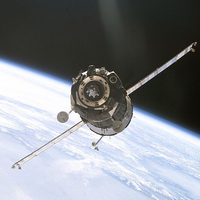
While much has been said about the overall merits of the New START agreement, comparatively little attention has focused on the treaty’s Article 10. This relatively short but telling passage borrows decades-old language reinforcing both the United States’ and Russia’s mutual obligations regarding “national technical means” (NTM) of treaty monitoring and verification — diplomatic speak for spy satellites. Article 10 obligates both parties to use NTM in accordance with the principles of international law, to refrain from concealment measures intended to impede NTM verification of compliance, and, most importantly, not to interfere with each other’s NTM. The nod to NTM […]
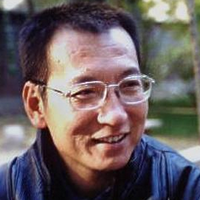
On the stage in Oslo City Hall today, there will be an empty chair for the winner of the Nobel Peace Prize, Liu Xiaobo. The United States government, which will be represented at the ceremony by its ambassador to Norway, Barry White, criticized China’s refusal to release the imprisoned Liu in order to attend the ceremony. The House of Representatives also passed a resolution calling for the dissident to be freed, while the Obama administration made its position clear in no uncertain terms: We think the Nobel committee has made a strong statement, and we will associate ourselves with that […]

XI’AN, China — While often portrayed as a major international cyber-security villain, the Chinese state is also facing its own grave online security problems. Despite having one of the most restricted internets in the world, it has generally struggled to develop coherent or effective policy responses to these threats. Recent developments suggest China may be attempting to modernize and legitimize its cyber-security apparatus. This represents a significant opportunity for foreign governments to revisit their perceptions of the country’s cyber intentions and engage with Beijing on a major transnational security and intelligence issue. To do so, it is first necessary to […]

The recent revelation that a computer worm called Stuxnet had caused disruption to the Iranian nuclear program has raised concerns about the unintended consequences of so-called cyber war. It has also caught the attention of nation states and others as Stuxnet has proven to be a truly disruptive cyber weapon. We have witnessed the true dawn of cyber war. Noted cyber security specialist Bruce Schneier recently wrote that cyber arms “agreements are badly needed” and that it is “not too late to reverse the cyber arms race currently under way.” Schneier is not alone in this call. For several years […]
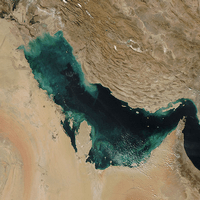
This weekend, Saudi Arabia will gather Gulf Cooperation Council (GCC) countries and other Middle Eastern states to collaborate on fighting the spread of weapons of mass destruction to terrorist organizations. The Saudi initiative reaffirms that regional cooperation is an emerging and powerful facet of international politics, and that regional organizations are a proven force against international security threats. This is not just hyperbole; there is ample evidence worldwide to back it up. Regional teamwork is best illustrated by the progress made in Europe, where the European Union synchronizes policies and resources to combat security threats worldwide. The regional approach to […]
I’ve had this thought taking shape ever since Kenneth Weisbrode discussed the different U.S. approach to Asia and Europe in his WPR Briefing from last month. Here’s the relevant passages from Weisbrode’s piece: In much of Europe and America, nationalism remains a taboo subject. Elsewhere it does not. As a result, we have one world committed to erasing the legacy of nationalistic rivalry with institutional cooperation, and another that entertains such institutions only insofar as they advance national interests vis-à-vis rivals. . . . Thus, Obama’s tour of Asia was touted as a goodwill visit to rising world powers, while […]
The U.S. and Australia recently agreed to cooperate on future space-surveillance projects, including tracking satellites and space debris. In an e-mail interview, Kirk Woellert, a U.S. government liaison and analyst for Interorbital Systems, discussed U.S.-Australia cooperation on space surveillance. WPR: What is the current status of bilateral space cooperation? Kirk Woellert: The U.S. and Australia have enjoyed a long history of both civil and national-security cooperation in space. On the civil side, cooperative agreements have been in place to conduct activities such as deep-space tracking, earth observation and high-altitude balloon flights. The Parkes Radio Observatory and the Honeysuckle Creek station […]

In October, India announced its inaugural scientific expedition to the South Pole, with the news well-received by the Antarctic Treaty nations, according to the Times of India. At about the same time, the Chinese icebreaker Snow Dragon embarked on its 27th expedition to the Antarctic, with one aim of its voyage to allow a team of Chinese engineers and logistical staff to renovate one of the country’s two main research stations in the southern polar region. The two stories reflect the increasing attention that the two countries are paying to the Antarctic region. India has been involved in the Antarctic […]

H.G. Wells’ futuristic 1933 classic, “The Shape of Things of Come,” predicted a post-apocalyptic world in which humanity’s recovery would depend on the airplane as the primary mechanism for both travel and political rule — the benevolent “dictatorship of the air.” The book reflected Wells’ prescient fears of catastrophic world war and his faith in technology’s capacity to tame mankind’s worst instincts. A book due out in March entitled, “Aerotropolis: The Way We’ll Live Next,” is the closest thing to a real-world vision to rival that of Wells. The book, written by journalist Greg Lindsay, is based on the visionary […]
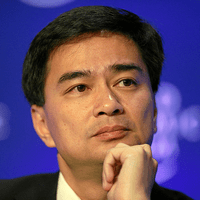
The withering of Thailand’s democracy is closing potential avenues for political resolution of the country’s ongoing crisis and may lead toward widespread violence, and possibly even an armed revolt. The latest episode in this ongoing, self-destructive process was the Constitutional Court’s decision on Nov. 29 to dismiss a case against the ruling Democrat Party — which had been accused of electoral fraud — on a technicality. In ruling that the case was not brought within the prescribed time period, the court declined to consider the merits or the opinion of the prosecutor. The party risked being dissolved in the event […]
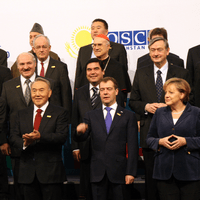
Leaders of the Organization for Security and Cooperation in Europe (OSCE) are currently gathered in Astana, Kazakhstan, for the group’s first summit in more than a decade. The OSCE has many responsibilities due to its comprehensive agenda, but its most urgent task is to help mobilize greater support for Afghanistan. Although Afghanistan does not belong to the OSCE, several member states border the war-torn country, while many more have sent military forces to help combat the Taliban insurgents threatening the internationally recognized Afghan government. The challenges facing the OSCE in Afghanistan derive mainly from the porous borders between northern Afghanistan […]
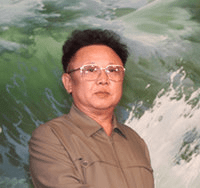
On May 12, 2010, Minxin Pei wrote in an op-ed for the Diplomat that “what is most worrying about a possible North Korean collapse is that the key players in the region are not talking to each other, even informally, about such an eventuality.” Thanks to the Wikileaks release of a huge cache of U.S. diplomatic cables, we now know that this isn’t true. In February, a South Korean diplomat predicted the collapse of North Korea within a couple of years after the death of Kim Jong-Il, and argued that sufficient economic considerations could placate China for the loss of […]
In the latest of a series of violent incidents involving Islamic militants in Tajikistan, police forces clashed with suspected extremists in the country’s northern Isfara district this fall. The government has taken measures to crack down on growing religious extremism, but some Tajiks fear those steps could backfire.
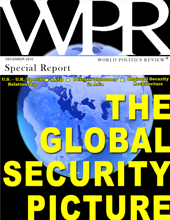
The world is undergoing a period of significant defense retrenchment. The U.K. has cut back dramatically on its defense budget and is making potentially transformative cuts to the storied Royal Navy. NATO’s members have gone back to the drawing board for a new Strategic Concept to guide the organization’s often-questioned mission. In Asia, the U.S. is assessing its relations with old allies and courting new ones, always with an eye to hedging China’s rise. And elsewhere, regional security organizations seek to define their role. This World Politics Review special report examines the global security picture through articles published from March […]
